News
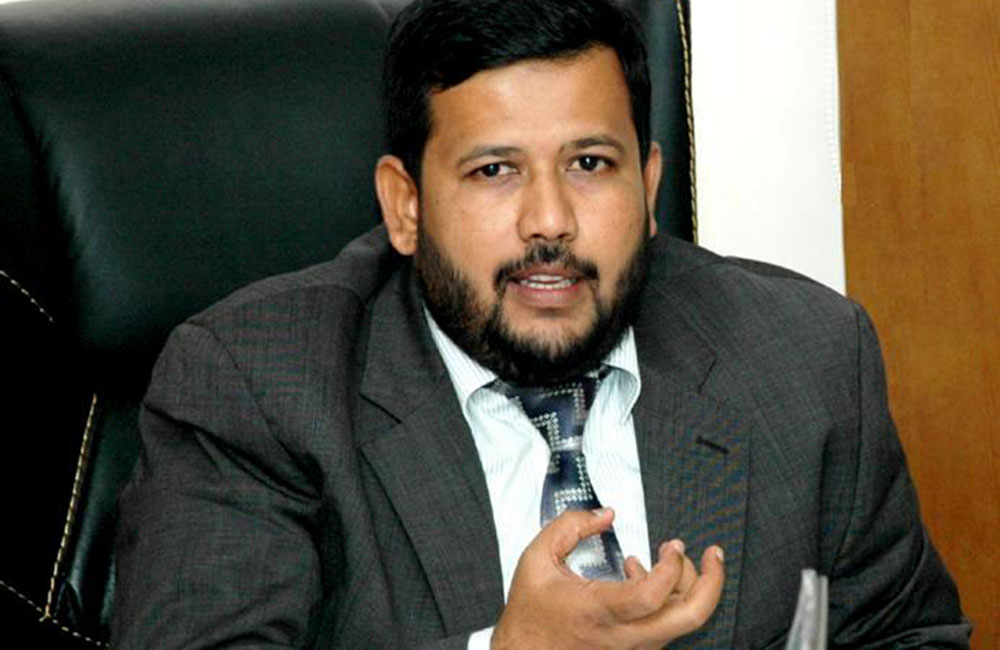
Re-accepting portfolios will be decided by party - Rishad
Leader of the All Ceylon Makkal Congress (ACMC) leader and former Minister Rishad Bathiudeen said the decision on re-assuming portfolios will be taken after discussing with the party and that the Muslim MPs were not in any hurry to accept ministerial portfolios.
Bathiudeen made these observations to the media following an event in Colombo.
Referring to the threat by MP Ven. Athuraliye Rathana Thero that another no confidence motion against him would be presented to parliament if he re-accepted ministerial portfolios, Bathiudeen charged that all Muslim ministers resigned en masse because they gave priority to the country and not because of any threats of the Thero.
“All of us resigned not because we were scared of the monk, we resigned because we love our country and for the sake of the country,” he said.
“All Muslim ministers resigned together. If we accept the portfolios again, we will do it together. The Muslim community is not responsible for what fanatics like Zahran did. We are opposed to any form of armed conflict,” he further noted.
When questioned about the objections raised by backbench MPs of the United National Party (UNP) over moves to re-appoint him as a Minister, Bathiudeen observed that there is no such objection.
“The Prime Minister is the leader of the UNP and he has said that there was no evidence against me and I have been cleared. Also, we are not UNPers and it does not matter to us,” he said, reiterating that the Muslim MPs were not in any hurry to be are-appointed as ministers and if they are to re-accept portfolios it will be a united decision.
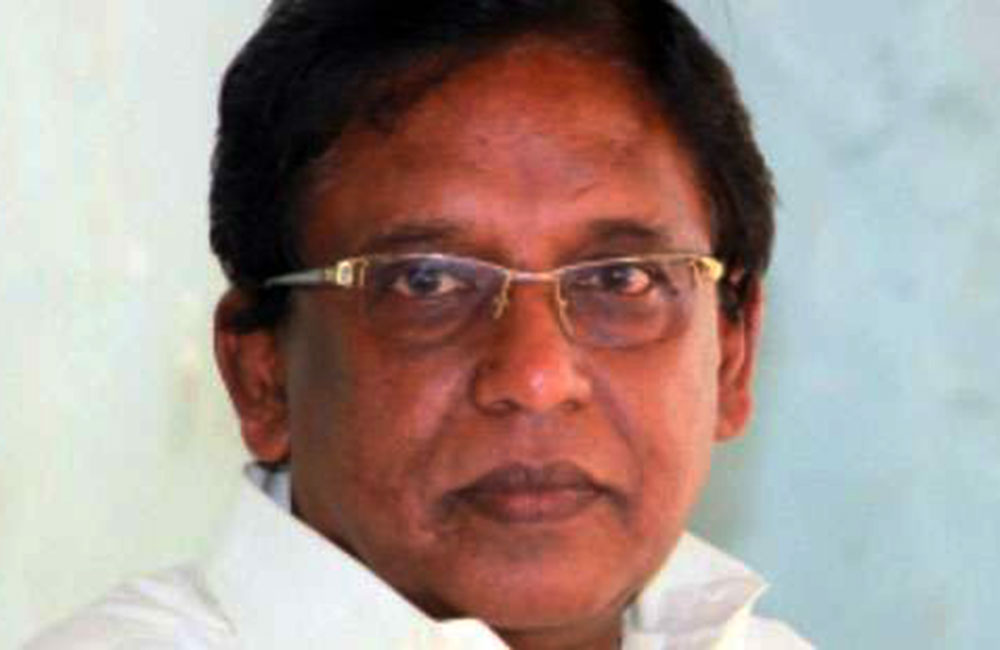
TNA reveals deal with RW to support NCM
The Tamil National Alliance (TNA) has revealed the deal reached with the United National Front (UNF) government led by Prime Minister Ranil Wickremesinghe in order to extend its support to defeat the no confidence motion (NCM) moved against the government in parliament last week.
TNA Parliamentarian Easwarapatham Saravanapavan has said that the TNA demanded a separate Tamil division in Kalmunai.
“We were undecided on how to vote on the NCM until we were certain that our demands would be met,” The Sunday Morning newspaper reported.
Saravanapavan has noted that the UNF government had finally agreed to set up a separate Tamil division in Kalmunai.
“Until 6.10 p.m. on Thursday, we were not sure how to vote. Then, we were informed that an accountant had been appointed as a first step to establish the separate Tamil division,” the TNA MP has said, adding that the TNA had decided to abstain from voting on the NCM at this juncture.
When inquired if there were any other agreements between the TNA and UNF government, Saravanapavan has noted that the TNA had indicated their main demands years earlier.
“We have already given our demands and it is up to the Government to deliver. What we want mainly is the new constitution. They must have the guts to bring it to Parliament,” he has added.
Despite rumours of a deal struck between the TNA and Wickremesinghe to must support for the NCM, the TNA remained tightlipped on the matter until Saravapavan’s revelation.
Separate division
The TNA was in a continuous battle with the Sri Lanka Muslim Congress (SLMC) to demanding a separate Tamil division in the Kalmunai Pradeshiya Sabha (PS).
The TNA maintained that the demand for a separate Tamil Divisional Secretariat is a decades-old request, going back to the late Appapillai Amirthalingam who once was the Opposition Leader of Parliament.
Earlier, the Prime Minister had requested the TNA to meet with the SLMC and resolve the matter amicably since the SLMC was opposed to the setting up of a separate Tamil division in the Kalmunai PS.
However, the SLMC has remained non committal about the matter following the Prime Minister’s agreement with the TNA.

Iran considering tea trade with Sri Lanka in return for oil dues - report
Iran is expected to sign a deal with Sri Lanka to receive the country’s famed tea over the next two years in exchange for the settlement of loans obtained for the purchase of oil, the Sunday Times reported.
As reported, the issue was discussed during a meeting between the Sri Lankan Foreign Affairs Minister Tilak Marapana and Minister of Plantation Industries Navin Dissanayake together with other relevant officials of the two ministries, Plantation Industries Ministry Secretary J.A. Ranjith said on July 11.
Sri Lankan tea exporters are currently facing a crisis since not only has the prices of tea dropped but the industry is unable to export to some of its key markets due to U.S. sanctions imposed on dollar transactions with Iran.
During the meeting they had discussed how to resolve the issue pertaining to the sale of Ceylon Tea to Iran due to the current U.S. sanctions imposed on Iran as a result of which banks refuse to engage in dollar transactions with Iranian banks.
“As a result, now we are looking at settling this through the loans from the Ceylon Petroleum Corporation (CPC) amounting to $200 million,” the ministry secretary said.
At the moment the officials were working out the mechanism to be adopted to settle this without any transactions, he said.
Ranjith explained that if this would be adopted they could sell tea to Iran for the next two years under this arrangement. The rate at which tea could be bought would be based on the market realities, he said.
As part of the transaction the CPC has agreed to pay the tea exporters some of the money directly thereby avoiding any financial transaction between the two countries in the sale of tea, the ministry secretary stated.
In the meantime, Iranian officials were also engaged in discussions to work out a mechanism on how the deal can go through and in this respect negotiations were still underway.
In 2018, Sri Lanka sold 23,914 metric tons (MT) of tea to Iran and in the previous year it was much higher at 27,418 MT. Iran is among the top five markets that purchases teas from Sri Lanka. The other key markets are Iraq, Turkey and Russia.
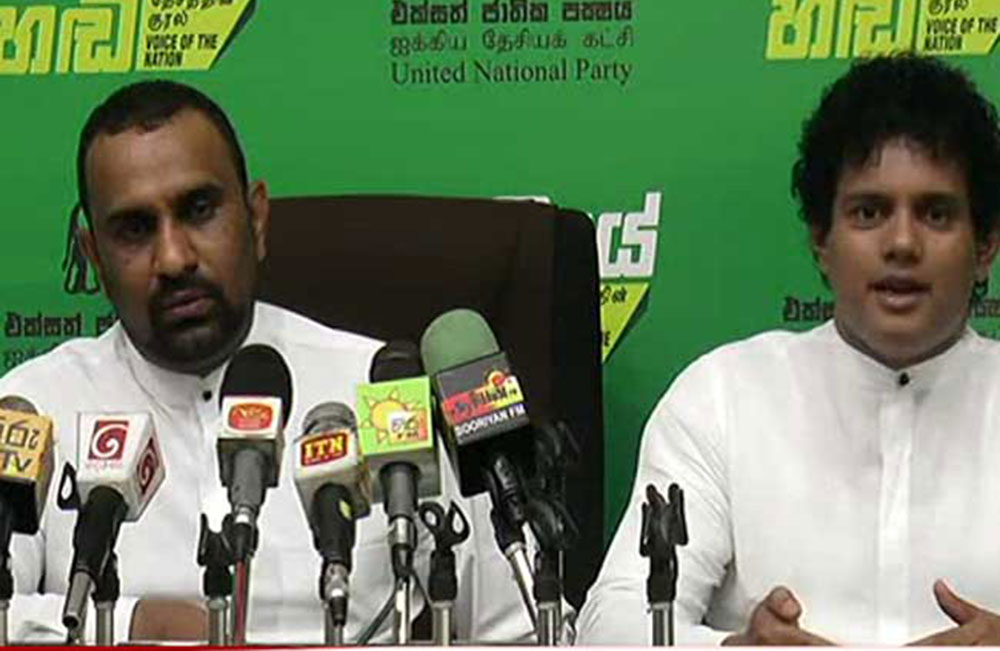
UNP backbench MPs push to impeach President
Backbench MPs of the United National Party (UNP) have called for the impeachment of President Maithripala Sirisnea once again. The first call to impeach the President was mooted after the 51 day coup late last year.
It is learnt that a group of UNP backbench MPs are now preparing to bring move an impeachment motion against President Sirisena at the next parliamentary session.
UNP backbencher MP Hesha Withanage has told The Sunday Morning that the President must accept some of the responsibilities for the attack and make a public statement on the matter.
“Through the revelations in the Parliamentary Select Committee, it is becoming increasingly clear that the President, as the one in charge of the Defence Ministry, is also responsible for allowing the tragedy to take place. He must acknowledge this fact publicly and he should divulge whatever information he has on the attacks as well,” he has said.
Withanage has noted that the UNP backbenchers expect to bring the impeachment motion in Parliament during the next session on 23 July and that the President has till then to make an announcement.
“The Prime Minister has announced that he would appear before the Parliamentary Select Committee probing the Easter Sunday attacks and disclose all information he had on the attacks. If the President takes similar steps, then we won’t bring the impeachment motion,” Withanage has said, adding that if the President fails, they would go ahead with the impeachment motion.
A 1/3 of MPs is required to present an impeachment motion to Parliament, which would mean the signatures of 75 MPs in the current Parliament.
Leadership unaware
However, it is learnt that the UNP leadership is unaware of the discussion between party backbenchers to commence an impeachment process.
Despite discussions on several occasions on the possibility of impeaching the President, the party seniors had not reached any official decision as such.
A senior UNP Minister said that there has not been any official party decision to impeach the President and such a decision needed the endorsement of the party leadership and seniors.
JVP to support
The Janatha Vimukthi Peramuna (JVP) meanwhile has said the party would extend its support to the impeachment motion only if the UNP had the backing of the necessary 75 parliamentarians to move the motion.
“If the UNP has the needed 75 MPs, then the JVP will give its support to the impeachment motion,” JVP MP Bimal Rathnayake has told The Sunday Morning.

Fintech sees modest growth in Sri Lanka
In Sri Lanka, fintech holds many promises, and while local banks are investing heavily in digitalization, many challenges still need to be addressed before a real, dynamic fintech ecosystem emerges.
When it comes to digital finance, it is safe to say that Sri Lanka is way behind the curve. Banks across the country are struggling to bring Sri Lankans to the digital era and consumers are still reluctant of digitally driven banking services, preferring conventional banking.
Indrajit Wickramasinghe, chief executive of Union Bank of Colombo, told Euromoney that Sri Lanka has been “slower to embrace digital and fintech,” because “culturally, a lot of people still prefer to visit the bank.”
Sri Lankans are very attached to their banks, and though the country has an overwhelmingly rural population with just 19% living in urban areas as of January 2018, Shehan Senanayake, a financial analyst at Colombo-based Frontier Research, estimates the domestic financial inclusion rate to be standing at around 80%, well above the region’s average.
This is mainly thanks to domestic banks which have worked hard to bring banking services to poorer, remote areas, and have become an important part of the local community, with people commonly gravitate towards their local branch to pay utility bills, draw pensions and transfer money.
Though old habits die hard and despite Sri Lankans’ reluctance of digital solutions, domestic banks are still pushing for digitalization.
One of the pioneers is Nations Trust Bank, which became the first bank to launch a pure digital banking service, FriMi, in 2017. Commercial Bank of Ceylon has its own digital banking offering called Flash, and NDB introduced its fully digital and paperless branch NDB Neos in January this year.
Dimantha Seneviratne, group chief executive of NDB Bank, said the bank is investing heavily in digital with an aim to “emulate the best of the world’s best digital banks, like [Singapore’s] DBS.” NDB Bank plans to roll out new, fully automated NDB Neos outlets around the country that are able to onboard customers with a minimum of physical friction. In June 2018, Sampath Bank made headlines when it launched a blockchain-based system that allows account holders to gift up to LKR 10,000 (US$56) to anyone in their smartphone’s contact list.
Fintech in Sri Lanka
While the Sri Lankan banking sector is pushing for greater digitalization, a few brave entrepreneurs and non-bank financial providers have launched fintech solutions to serve the market.
Dialog Axiata, Sri Lanka’s largest telecommunications firm, launched in 2012 a mobile money service called eZ Cash. So far, eZ Cash has been rather successful, processing in 2017 LKR 25.5 billion (US$144 million) worth of transactions. At the end of 2017, it had three million users.
In September 2017, Dialog Axiata bought a majority stake in Colombo Trust Finance to expand its digital finance offering. Renamed Dialog Finance, the division is set to roll out later this year several new online lending services and seeks to partner with local and foreign digital financial providers.
According to Frontier Research’s Senanayake, mobile money and payment services are the country’s “most significant” fintech success and beside eZ Cash, there were 12 central bank-licensed mobile-money operators and two providers of cellphone-based e-money services as of the end of 2017.
Some of the most notable solutions in the space include DirectPay, an electronic payment solution, Park and Pay, an app that lets motorists find, book and pay for vacant parking spaces anywhere in Colombo, and JustPay, a mobile payment solution by LankaClear that allows customers to make retail payments up to LKR 10,000 (US$56) by transferring funds from their current or savings account to the merchant’s account directly.
Another segment that’s emerging in Sri Lanka is peer-to-peer lending with the launch of the country’s first platform, Helios, in early 2018. Helios connects borrowers with investors through an online marketplace, and as of July 2019, the platform had channeled some LKR 4 million (US$22K) in loans. Helios secured its second round of funding earlier this month.
Crowdisland is another Sri Lankan fintech solution. Launched in 2016, the platform matches local entrepreneurs with angel investors around the world.
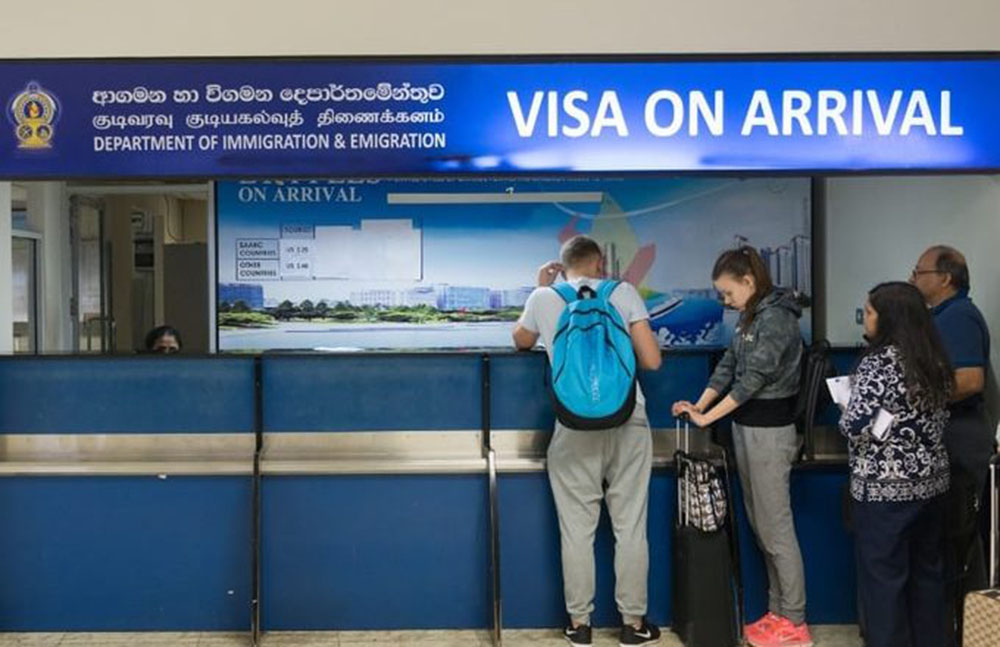
Govt. looking to revive visa-on-arrival facility
The government is now considering to revive its visa-on-arrival facility, it is learnt. The Sri Lanka visa-on-arrival scheme was suspended after the Easter attacks, but now the country is planning to bring it back for 39 countries and is likely to go in effect from August 1.
The country’s visa-on-arrival was suspended on April 25, after the April 21 attack killed 258 people. At that time, the visa-on-arrival policy was laid out to increase tourism during the off-season period.
According to reports, Minister of Tourism, John Amaratunga alongside the Department of Immigration and Emigration, are working on a proposal that would seek the approval of the Sri Lankan Cabinet for the revival of free visa, and as well as the visa-on-arrival scheme.
The programme, if revived, will return for a trial period of six months. However, the visa on arrival programme is going to open up for 39 countries, except India and China for the time being. If the trial is a success, India and China will also be extended this advantage to in the future.
The Sri Lankan government is also going to put in place a strong monitoring system that will keep a tab on people coming into the country. The new system is going to work to prevent criminals and troublemakers from entering the country.
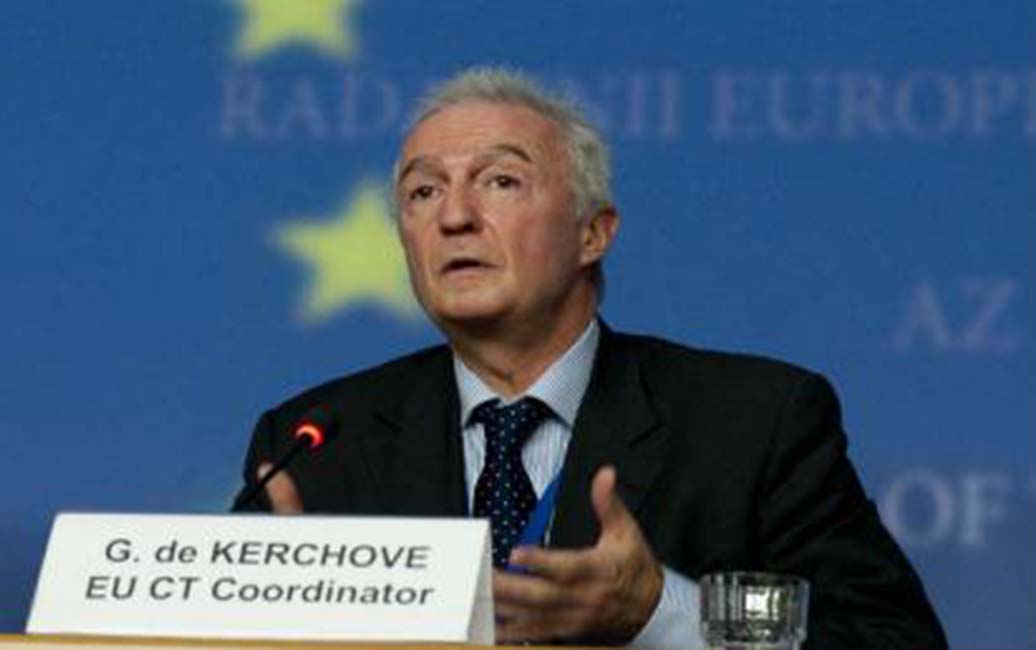
EU and Sri Lanka hold counterterrorism dialogue
The European Union (EU) and Sri Lanka held an informal counterterrorism dialogue on Monday, chaired by EU Counterterrorism Coordinator Gilles De Kerchove together with Acting Secretary of Foreign Affairs, Ahmed A. Jawad.
De Kerchove underlined the EU's solidarity with Sri Lanka following the Easter Sunday terrorist attacks. Common challenges relating to violent extremism and terrorism were discussed and experience regarding responses was shared. The EU underlined the importance of efficient coordination of counterterrorism efforts, the essence of focusing on the prevention of violent extremism and the importance of counterterrorism responses to be fully in line with human rights obligations.
The EU presented a support package for Sri Lanka under the Instrument contributing to Stability and Peace, to be implemented with the UNODC and UNDP. The package worth EUR 8.5 million will notably focus on law enforcement, rehabilitation and disengagement, counter-narratives, and online radicalisation.
Following the dialogue, Giles de Kerchove was set to hold meetings with President Maithripala Sirisena, Prime Minister Ranil Wickremesinghe, and Minister of Foreign Affairs Tilak Marapana.
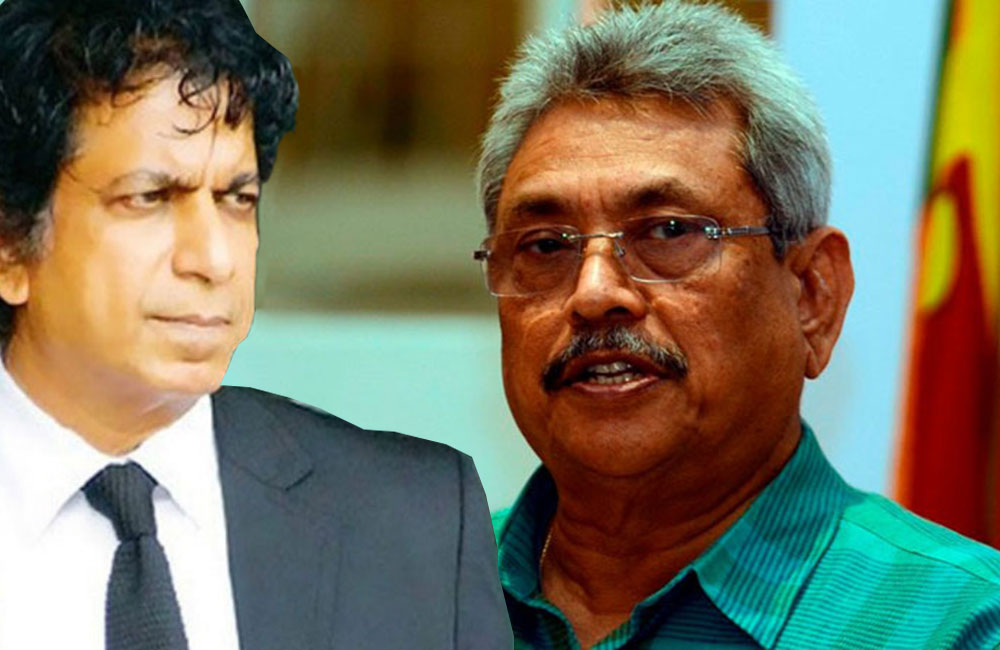
Gota's deal with the AG exposed
Attorney General Dappula de Livera has been in the limelight during the past few weeks as a man on a mission serving indictments in several long dragging probes as well as calling for trial at bar benches to hear cases on several key incidents that took place during the former Mahinda Rajapaksa regime.
However, looking at the manner in which the Attorney General has been serving indictments and forcing law enforcement authorities to apprehend the accused, it is evident that the Attorney General is neither working for President Maithripala Sirisena nor Prime Minister Ranil Wickremesinghe, but according to the agenda of former Defence Secretary and presidential hopeful Gotabaya Rajapaksa.
It is reliably learnt that despite over 100 completed investigations pending before the Attorney General that have been forwarded by the police Financial Crimes Investigations Division (FCID) and the Criminal Investigations Department (CID) (e.g. money laundering cases against former monitoring MP of the External Affairs Ministry, Sajin Vaas Gunawardena, former Minister Mahindananda Aluthgamage and other SLPP figures), the Attorney General has selectively forced the CID to send files on open investigations (such as Lasantha Wickrematunge murder, Upali Tennakoon assault, Prageeth Eknaligoda disappearance and Keith Noyahr abduction).
The Attorney General, without allowing the completion of investigations, has rushed indictments against the junior officers against whom material is now available, while letting the likes of former Defence Secretary Gotabaya Rajapaksa escape.
It is also learnt that despite the CID’s vehement objections, the Attorney General had leaked to the public and media the very sensitive information relating to Warrant Officer Lalith Rajapakshe of the Tripoli Team allegedly involved in the murder and attacks on media personnel, blowing the cover of the CID officers who were investigating Rajapakshe, and alerting him to his impending arrest as well as the evidence against him (the fingerprint) allowing him to prepare a story before the CID could question him.
When Rajapakshe was arrested, the Attorney General has reprimanded the CID for keeping him in remand by using an identification parade, saying it was only an assault charge.
The Attorney General has also leaked to the media that Rajapakshe was to be charged with the Keith Noyahr abduction and leaked the charges against them, which in turn allows the defence counsel in that case to prepare their response even before the CID has had an opportunity to question the suspect on these charges.
Meanwhile, at the Supreme Court, the Attorney General recently agreed to amend Gotabaya Rajapaksa’s indictment in the D.A. Rajapaksa monument case, delaying that case even further.
It has now been almost a year since the case was filed and it was done despite the Supreme Court hearing the case before only three judges, when according to the Judicature Act Amendment last year, any challenge to a Permanent High Court at Bar order needs to be made before a bench of five Justices of the Supreme Court.
Also, the Attorney General has filed indictments in both the Rathupaswala shooting and Welikada prisons cases before a Trial-at-Bar, but has conveniently ignored all evidence against Gotabaya Rajapaksa and his people in both cases, and has not charged them, but has only resorted to accuse junior officers. (The Leader)
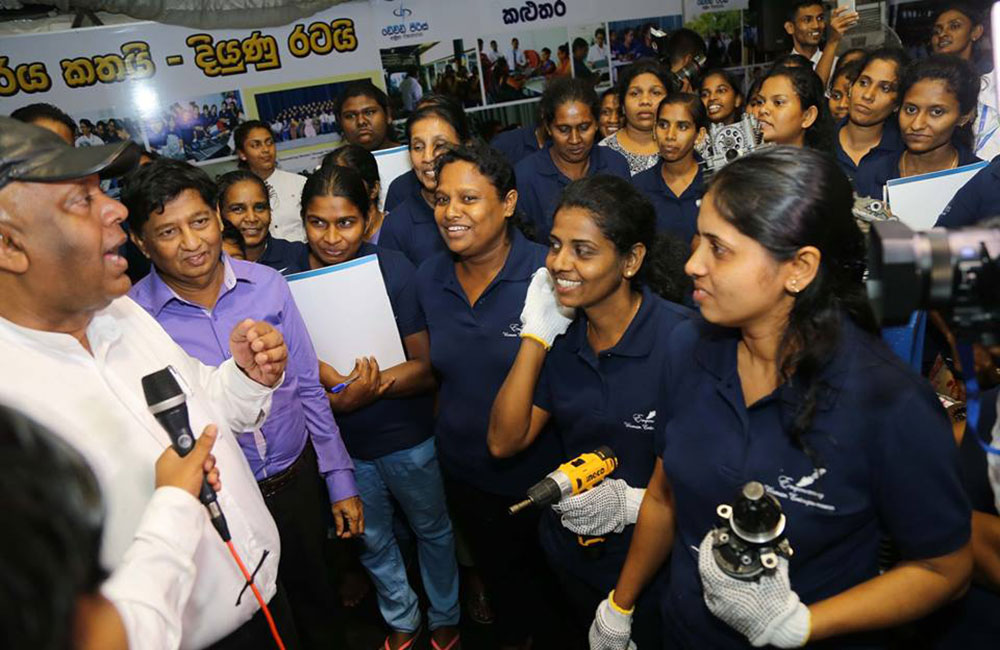
'Enterprise Sri Lanka' exhibition in Anuradhapura
The Enterprise Sri Lanka Exhibition organized by the Ministry of Finance will be held at the Anuradhapura Walisinghe Harischandra Playground in Anuradhapura from the 24th to the 27th of July, the Ministry of Finance announced.
The Enterprise Sri Lanka credit scheme was implemented according to a concept of Finance Minister Mangala Samaraweera with the objective of producing 100,000 entrepreneurs in the country. According to the Finance Ministry, over 47,000 loans have been registered up to date and a staggering Rs. 78,621.6 Million (over Rs. 78 Billion) has been disbursed as loans as of March 2019.
This exhibition will be a platform for intended entrepreneurs to obtain the knowhow and share knowledge on enterprise development. Arrangements have been made through the State and Private banks and other relevant agencies to provide required assistance, advises and training to be an entrepreneur. The Ministry added that the commercialization of the agro industry, promotion of the cashew and coconut based industries in the province were identified as potential sectors to be targeted for entrepreneurship through the exhibition.
This exhibition has been divided into seven different zones enabling the participants to have easy access to the venues of their choices. Accordingly, they are the State and Private Banks Zone, State and non State Educational Zone, Green Zone, New Inventors Zone, Trade Zone and Media Zone that will provide the relevant facilities to all prospective entrepreneurs.
The Trade Zone especially will have trade stalls of the Free Trade Zones in the country where people will be able to purchase ready made garments and other finished products at duty free prices.
The Educational Zone is dedicated for students who seek guidance on their future educational prospects. The Ministry of Health along with the provincial Health Department will conduct clinical services with laboratory facilities during the exhibition.
Several other government ministries and departments will also have their mobile service officers to provide their respective services. Furthermore, the Consular Office of the Ministry of Foreign Affairs will provide an opportunity to all to have their certificates and other documents endorsed at one place.
This will be the second edition of the Enterprise Sri Lanka exhibition with the first event being held in Monaragala last year.
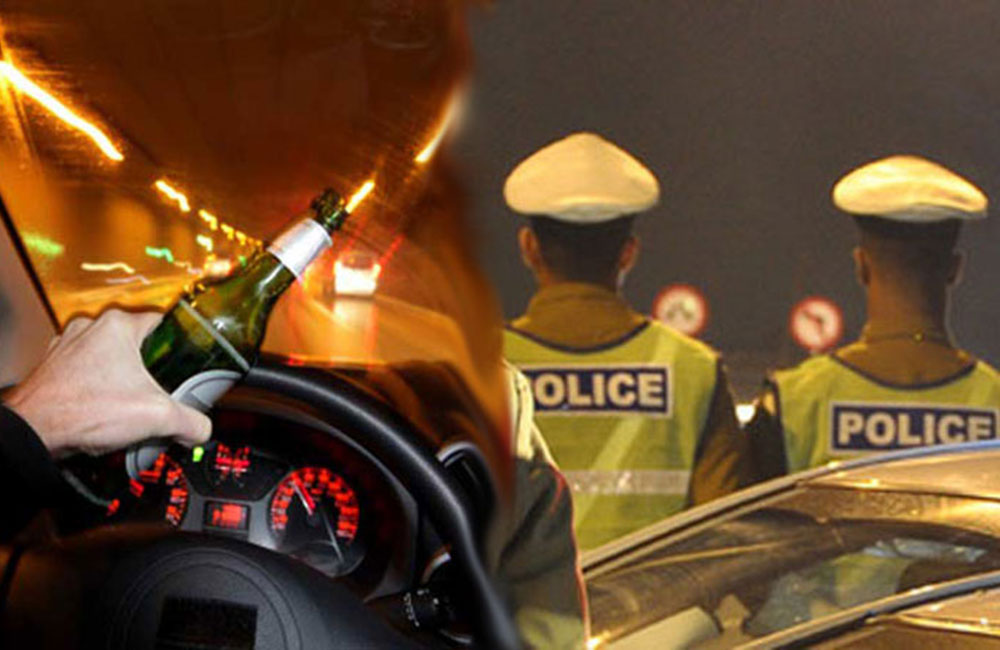
2000 drunk drivers nabbed during last 7 days: Police
Over 2,000 drunk drivers have been arrested in Sri Lanka over the last seven days after police launched a special island-wide operation since July 5, police said in a statement here Thursday.
A total of 2,037 drivers were arrested from across the country till Thursday afternoon, in the special operations which will end on August 5.
Police spokesperson SP Ruwan Gunasekara said the drunk drivers would be fined Rs. 25,000 and officers who make the arrests would be rewarded.
Road accidents claimed over 3,000 lives in Sri Lanka last year.
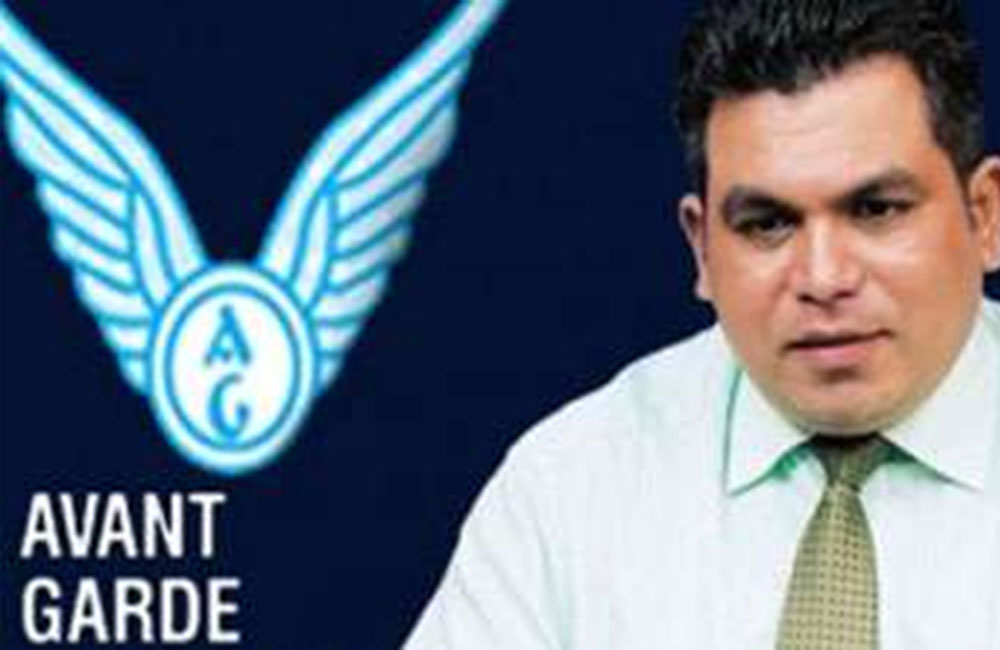
Avant Garde: MoD and Navy to launch investigation into the sale of weapons
Sri Lanka's Ministry of Defence (MOD) and Navy have launched an investigation on the alleged sale of weapons to foreigners by the Navy. It was reported that this includes investigation on weapons that have gone missing while in Naval custody.
State Minister of Defence Ruwan Wijewardene has reportedly said that he had instructed the Navy to carry out an investigation in to the allegations against the Navy that have been publicized by Avant Garde Maritime Services Ltd. Chairman Nissanka Senadhipathi last week.
Senadhipathi charged that he had information that proves several low-ranking Navy officers had sold around 800 weapons to foreign nationals for US$ 5,000 before the floating armoury business was handed over to Avant Garde.
“The weapons-handling business carried out by the Sri Lanka Navy on the ground was handed over to our ‘MV Mahanuwara’ vessel docked at the Galle Port due to the corrupt actions of several low-ranking officers involved in the weapons-handling business of the Navy. Key among the reasons for handing us the weapons-handling business from the Sri Lanka Navy was the sale of over 800 weapons to foreign nationals for US$ 5,000 (this number could be much higher), issuing licenses to these weapons, extorting money from these foreign nationals, and the entrance of foreign nationals to the country carrying these weapons posing a threat to national security. These weapons have fallen into the arms of foreign terrorist organisations like ISIS and Al-Qaeda. The future consequences of these actions are unimaginable,” Senadhipathi alleged.
He said that he had withheld this information since he did not want to tarnish the image of the Sri Lanka Navy, but was forced to reveal the alleged corruption due to various allegations being levelled against him.
Missing weapons
Senadhipathi also charged, “Before Rakna Lanka handed over the business to us, 172 weapons that were held by 24 foreign companies that were taken overseas had gone missing and we managed to travel around the world and locate 158 of those missing weapons. The balance 14 weapons remain missing to date. These weapons would have fallen into the hands of terrorists like ISIS and Al Qaeda.”
“We are in possession of a letter issued on this matter by the UN Maritime Agency. In the event one of these missing weapons are used in an assassination and is taken into custody, investigations into the weapon number will reveal that it was originally issued by Sri Lanka. Although I had informed the responsible authorities as well as the Criminal Investigations Department (CID) about this issue, action has not yet been initiated on the matter,” he added.
Probe
Meanwhile, Minister Wijewardene has noted that he was informed of these allegations and had instructed the Navy Commander to conduct an inquiry into the matter so that they can ascertain the veracity of these allegations. However, he has further noted that it was highly unlikely that such allegations were true.
“I highly doubt that Navy personnel illegally sold weapons. If it were true, then the Navy Commander at the time would have been aware. Investigations will reveal more,” the Minister has added.
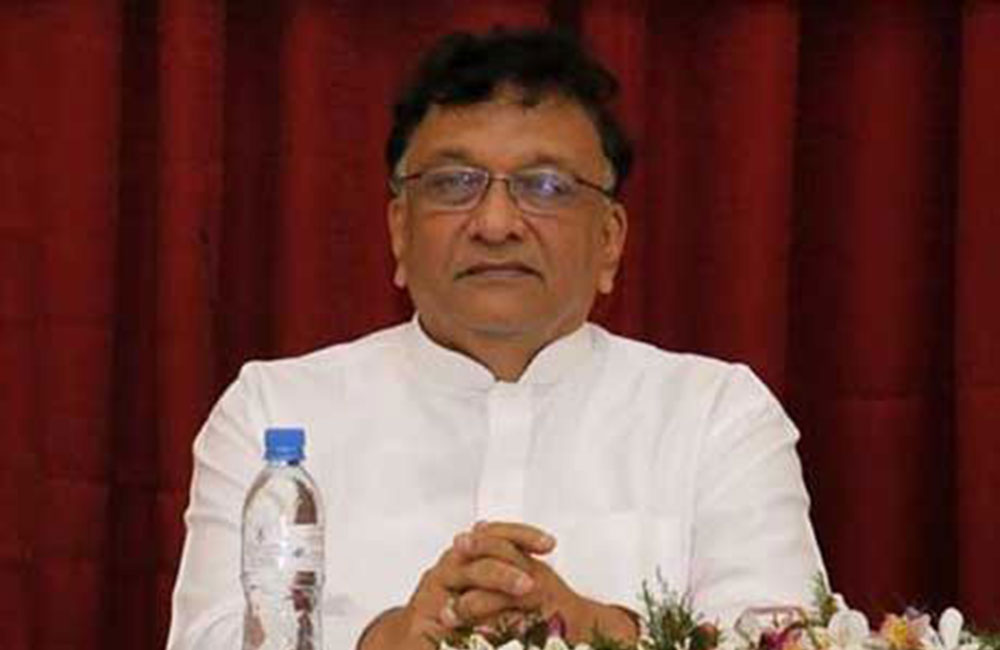
Sri Lanka schools not teaching children actual history: Kiriella
Sri Lanka's schools are not teaching correct history, a government minister said giving credence a growing awareness that kids are being brainwashed with cherry picked historical accounts aimed at triggering nationalist hate through a centralized syllabus.
Sri Lanka's kings were not nationalist, Hill Country Development Minister Lakshman Kiriella said Tamils and Muslims were 'relatives' (nedayo) of the Sinhalese, despite false portrayal by some elements.
After long promoting hate against Tamils, teachers in Sri Lanka's schools are now turning aggressively into promoting hate against Muslims, according to some critics.
"I am please asking you to stop promoting ethnic hatred," Kiriella told parliament addressing some members of the opposition.
"The Tamils and Muslims are our relatives. The Tamils came from India. We also came from India. We have to accept that. Some people are not willing to accept that."
"When Muslims first came to Sri Lanka in the 16th century they married Sinhalese wives.
"When the Dutch chased away Muslims they went to King Senarath. Now if they came to meet what will happen? It was King Senarath who told them to settle in the East and look after the area for him. That is how our Sinhalese kings behaved.
"It was King Senarath who gave the land to build the Church in Vavuniya, Sir."
"But we are not taught this in school."
He said several Sri Lankan kings were 'Tamil'.
King Vijaya Rajasingha of Kandy was the brother of the wife of King Vira Narendra Sinha who was a Nayak Princess from present-day Tamil Nadu.
"There was the choice of a Sinhala and Tamil prince for the throne. One was Unambuwe Kumaraya, the son of Unambuwer Kumarihami. The other was Vijaya Rajasinha, who was King Narendrasinghe's wives brother.
Kiriella said the Joseph Vaz, the Catholic leader who was recently beatified by the Pope was buried in Kandy.
"The Kings of Kandy has given a example to the nation about a culture without nationalist hatred.
"We had this culture in our country. But this history in not taught in school. Most people only know the victory of 1956. We also know the 71 and 89 rebellions. That is what we know. Political philosophers have said that centralized syllabi of state schools were a key trigger of ethnic violence in newly independent European states as well.
Some of the worst ethno-linguistic and ethno-religious violence was seen in Eastern Europe after imperial and monarchical rule was replaced by the popular vote (democracy).
"Western Europe developed the system of obligatory public education," wrote Ludwig von Mises, who saw Nazism emerge out of democracy in Europe after the Austro-Hungarian Empire broke down.
"It came to Eastern Europe as an achievement of Western civilization.
"But in the linguistically mixed territories it turned into a dreadful weapon in the hands of governments determined to change the linguistic allegiance of their subjects.
"The philanthropists and pedagogues of England who advocated public education did not foresee what waves of hatred and resentment would rise out of this institution."
Source: EconomyNext
Page 320 of 526